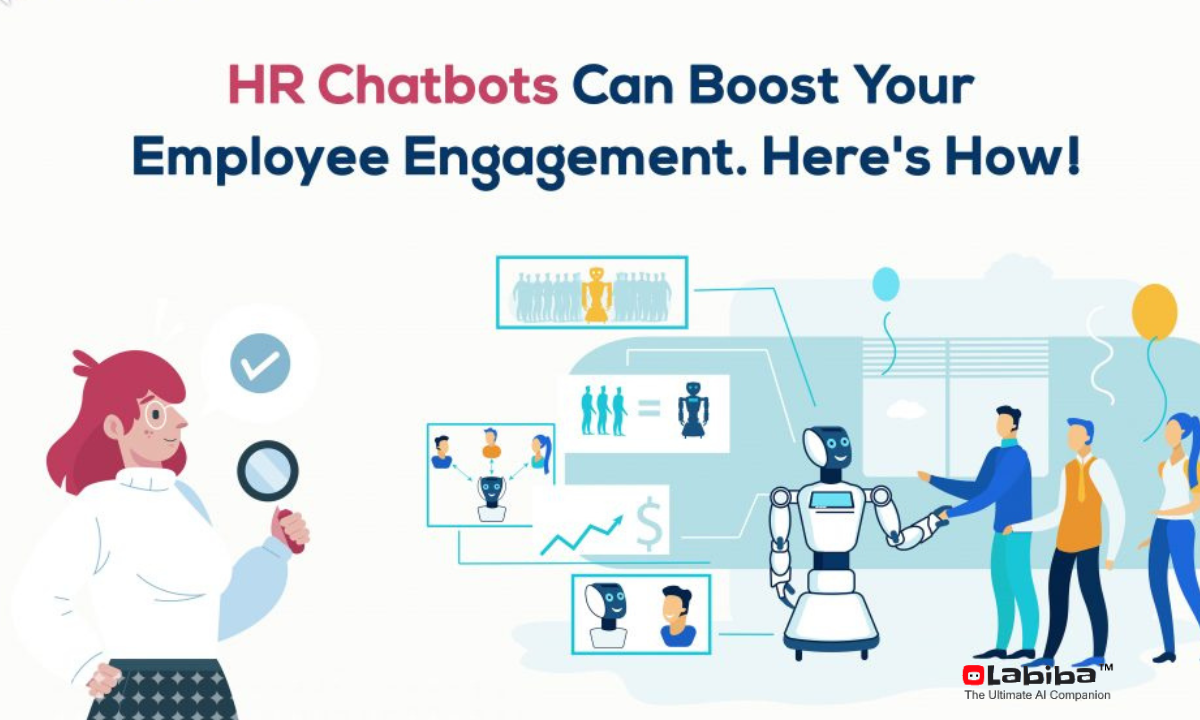
In today’s fast-paced work environment, businesses are constantly exploring innovative ways to enhance employee engagement. Keeping employees motivated and satisfied can directly impact productivity and organizational success. One such game-changing solution is the use of chatbots. By leveraging chatbots for employee engagement, companies can simplify tasks, boost communication, and provide instant support, creating a more efficient workplace.
This article delves into how chatbots can transform employee engagement and help organizations maintain a connected workforce.
What Are Chatbots in the Workplace?
Chatbots are software tools designed to interact with users through messages. In a corporate setting, they act as virtual assistants that handle repetitive tasks, answer employee questions, and provide important updates. These AI bots can be programmed to work across various communication platforms like Slack, Microsoft Teams, or company intranets.
By automating engagement activities, chatbots reduce the workload of HR teams, allowing them to focus on strategic initiatives.
Key Benefits of Chatbots for Employee Engagement
1. Enhancing Communication
Chatbots enable real-time communication by delivering instant responses to employee queries. They can share company announcements, schedule reminders, and even conduct surveys to collect feedback.
For example, a chatbot can:
Send reminders about upcoming meetings or deadlines.
Notify employees about policy updates or new benefits.
Answer frequently asked questions, reducing response times.
This ensures employees stay informed and engaged without the need for multiple emails or meetings.
2. Simplifying Onboarding Processes
The onboarding experience plays a significant role in employee engagement. Chatbots can guide new hires through the onboarding process, providing step-by-step instructions for completing paperwork, setting up accounts, or accessing training materials.
By automating these tasks, chatbots:
Save time for HR teams.
Ensure a smooth and consistent onboarding experience.
Make new employees feel supported from day one.
3. Providing Continuous Learning Opportunities
Employee engagement often thrives when there is room for growth and learning. Chatbots can help by offering personalized training recommendations, sending reminders about courses, and even conducting short quizzes to reinforce learning.
Employees can interact with the bot to:
Access training modules.
Track progress on certifications.
Receive tips or resources for professional development.
4. Boosting Employee Recognition
Recognition is a cornerstone of engagement. Chatbots can play a vital role in acknowledging employee achievements by sending automated congratulations or encouraging peer-to-peer recognition.
For instance, a chatbot can:
Notify team members when someone achieves a milestone.
Allow colleagues to nominate each other for awards or recognition.
Celebrate work anniversaries or birthdays with personalized messages.
Such small yet meaningful actions can foster a culture of appreciation and motivation.
5. Streamlining Feedback Collection
Effective feedback loops are essential for improving workplace dynamics. Chatbots can regularly check in with employees through quick surveys or pulse checks, gathering valuable insights about their experiences.
Advantages include:
Higher participation rates due to the simplicity of chatbot surveys.
Anonymous feedback options for honest responses.
Quick analysis of data to identify areas for improvement.
This ensures that employee concerns are heard and addressed promptly.
6. Supporting Employee Well-being
Workplace well-being has become a top priority for many organizations. Chatbots can serve as wellness assistants by offering tips, sharing stress-management resources, or even reminding employees to take breaks during busy days.
Some features include:
Daily mood check-ins to monitor employee well-being.
Sharing mindfulness or exercise routines.
Providing access to mental health resources or helplines.
By promoting a healthy work-life balance, chatbots contribute to happier, more engaged employees.
Real-Life Use Cases of Chatbots in Employee Engagement
1. HR Assistance
Many companies use chatbots to handle repetitive HR tasks like leave applications, payroll inquiries, or benefits information. Employees can receive answers instantly, improving satisfaction and efficiency.
2. Training and Development
Organizations integrate chatbots with learning management systems to recommend courses based on employee roles and interests. This personalization keeps employees invested in their growth.
3. Event Coordination
Chatbots can manage RSVPs for events, send reminders, and even share event-related updates, ensuring better participation and engagement.
Best Practices for Implementing Chatbots
To maximize the benefits of chatbots in employee engagement, companies should:
Choose the Right Platform: Ensure the chatbot integrates seamlessly with your existing tools.
Focus on User Experience: Design intuitive and user-friendly interfaces.
Personalize Interactions: Customize chatbot responses based on employee preferences.
Test Regularly: Continuously test and refine chatbot functionalities to align with employee needs.
Promote Awareness: Educate employees about the chatbot’s capabilities to encourage adoption.
The Future of Chatbots in Employee Engagement
As technology advances, chatbots will become more intelligent, capable of handling complex queries and offering personalized experiences. Companies investing in chatbot technology now will be better equipped to maintain high levels of engagement and productivity in the future.Some top chatbots that already playing important role in employee enagagement is Olabiba,chatgpt and tidio.
Conclusion
Chatbots are revolutionizing the way organizations engage with their employees. From improving communication to supporting well-being, they offer a range of benefits that enhance workplace dynamics. By automating routine tasks and providing real-time assistance, chatbots not only save time but also create a more engaged and satisfied workforce.
Investing in chatbot technology is no longer optional for forward-thinking companies—it’s essential for staying competitive and ensuring long-term success.